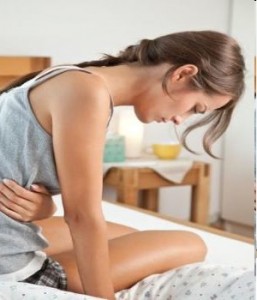 Sarah Ogden, a Staff Writer for Everyday Feminism, recently wrote an article.that screams “PERIOD WISE” beginning with her first sentence: “All right, folks, it’s time to talk about it.”
Sarah Ogden, a Staff Writer for Everyday Feminism, recently wrote an article.that screams “PERIOD WISE” beginning with her first sentence: “All right, folks, it’s time to talk about it.”
“Breaking News: Menstruation Is Awesome!” is loaded with timely and important information – and chocked full of encouragement.
“It’s a beautiful thing.” That’s what she said about menstruation.
She said a lot more, too, like…how her boyfriends knew more about her body than she did and that the products we use help us remain disconnected from our bodies.
How’s that for a teaser? She packs quite a punch in her piece.
Here are some highlights.
- We need to reclaim this experience and find power in the blood that unites us.
- Menstruation is natural, beautiful, and powerful.
- Some companies try to make us feel bad about our periods to buy their products.
- Vaginas are not dirty.
- Some companies try to make us feel periods are “inconvenient” to buy their products.
- Menstruation is not a disease, and there should not exist a “cure.”
- Our periods connect us to the moon and to the sea.
- Menstruation is a shared experience amongst women and trans people who menstruate.
- What’s a menstruating person to do? (She shares 3 tips.)
I encourage you to take a few minutes and read Sarah’s post.
If you use tampons as your main menstrual product, I hope Sarah’s words below awaken you to the possibility of trying other products (esp. reusable menstrual cups like Lunette, Diva, Keeper, Instead SoftCup, or pads like Always Infinity or cloth).
We use plastic to put tampons in our vaginas, pull them out by the bottom of long string, and then throw them away, all without getting our fingers bloodied. We are almost completely disengaged from our blood and our bodies.
Period wise women redefine menstruation by breaking taboos and challenging long held beliefs and assumptions.
Period wise women personalize menstruation through the acceptance of their own experience and in sharing their experience with others.
Think.
- How have you redefined menstruation?
- How have you personalized it?
If you knew that your next period would be your last…
